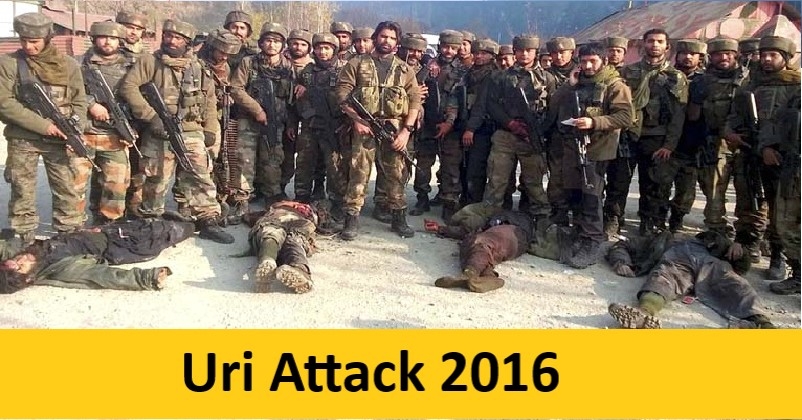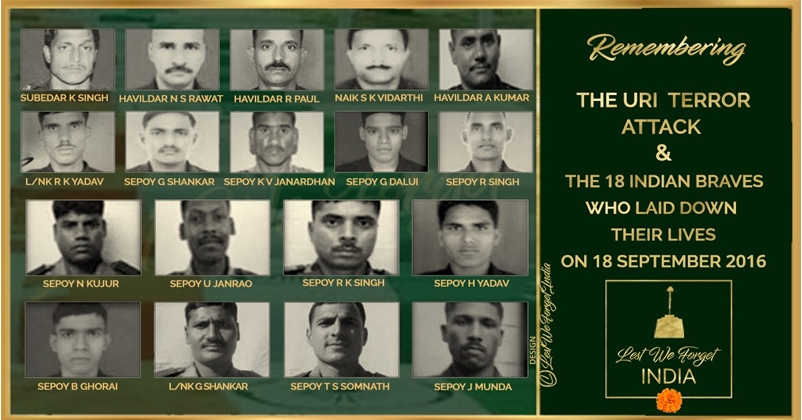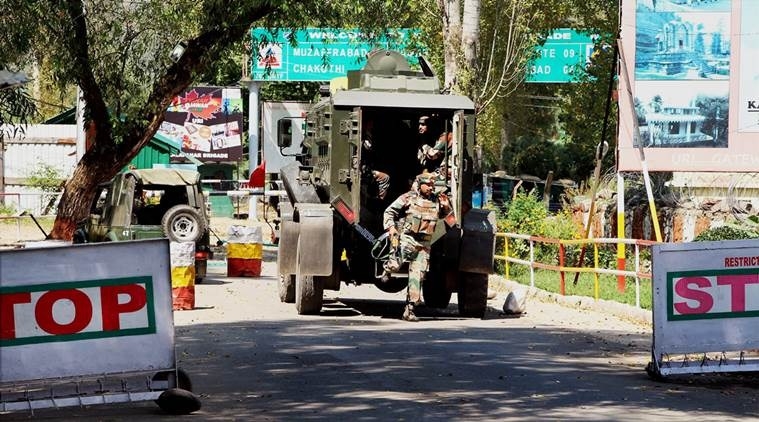Remembering 'Heroes' martyred in Uri terror-attack; A provocative assault by Pakistan challenging India’s forbearance
18 Sep 2020 14:44:55

Four years back, on this day the nation suffered one of the worst attacks in the past two decades when Pakistan backed terrorists targeted the Indian Defence Forces in the Uri sector of Baramulla that led to the martyrdom of 18 soldiers. In the early hours of Sept 18, 2016, four heavily armed terrorists crossed the LOC trekked for about 6 kms, breached a heavily guarded military camp in the Uri sector of Jammu and Kashmir and launched a massive grenade attack. Investigations held later had revealed that all four terrorists belonged to Pakistan based terror group JeM, and were carrying AK-47 rifles that had grenade launchers clipped under their barrels.
The scale of the terrorists’ raid was to an extent that all four of them were carrying more than 50 incendiary grenades that were specially designed to set off fires. Armed with these special grenades, the terrorists had exploded a fuel depot targeting Indian soldiers in sleep. Although, in the response of this massive attack on the Indian armed forces, India soon after had launched a surgical strike and successfully destroyed 7 launch pads of terrorists, killing nearly 38 terrorists along with 2 Pakistani soldiers.
The Home Minister Amit Shah had asserted post the surgical strike, " India's strength has been recognized globally after the surgical strike and the airstrike. The perception of the world has changed.”
While addressing an event of the All India Management Association, he had added that there will be no compromise on India's security. “We will not tolerate even an inch of breach of our territory. We will deal with it strongly. We will not allow any drop of blood of our soldiers to go in vain," he had said in strong words.

How families of Uri attack martyrs remember their brave sons today with tears in eyes and pride in hearts
Havildar Ravi Paul of 10 Dogra Regiment was one of the 18 brave soldiers who lost their lives on 18 Sept 2016 while fighting the four terrorists who attacked the Army Brigade HQs in Uri sector of Baramulla district. He had served the Army for 23 years. Ravi Paul is survived by his wife and two sons. His younger son remembers him with pride and is proud of his father’s martyrdom who laid down his life while serving the nation.
After hearing of her son’s martyrdom, the mother of another soldier martyred in the Uri attack on Sept 18 demanded justice and strict punishment for the perpetrators as a pall of gloom descended on his village in West Bengal's Howrah district, and justice was served to her when the Indian Army led surgical strike killed 38 terrorists successfully.
Another braveheart, Lance Naik RK Yadav, was days away from welcoming his third child when he was martyred in the attack in 2016, while Sepoy Ganesh Shankar had promised his family that he would come (Sant Kabir Nagar) in October (2016) for the preparations of his sister's marriage, but he never did. The 34-year-old supported a large family and left behind three children.
The instances of 28-year-old Harendra Yadav's bravery are still popular in his village in Ghazipur. The villagers distinctly remember his heroic act of rescuing two people and animals from a hut on fire. Father of Sepoy Rajesh Kumar Singh of Jaunpur was upset that his son lost his life in a terrorist attack as he wanted him to lay down his life in a war instead.
In one of the deadliest attacks on the Army in recent years, 18 jawans were martyred on the day while many others were injured. The terrorists belonging to Pakistan based JeM had reportedly stormed a battalion headquarters of the Indian force in North Kashmir's Uri town in the wee hours on Sept 18, 2016.
How terrorists targeted the Indian Army HQs on Sept 18, 2016 in Uri?
The terrorists purposely picked a temporary fuel depot housing hundreds of litres of petrol, diesel, and kerosene for the attack seeing its inflammatory potential. Adjacent to the fuel depot that housed precisely 200 litres of oil barrels, were canvas tents where soldiers of the 5 Bihar were sleeping. The grenade attack compounded by the massive explosions at the fuel depot encompassed the tents nearby.

Indian Army brigade headquarters in Uri, near the Line of Control, which was attacked
The barrels contained diesel for trucks, kerosene for cooking food in high-altitude posts along with petrol for Maruti Gypsies of the 12th brigade based near Uri and thus led to a major explosion wherein at least 14 soldiers were engulfed in the flames while four more attained martyrdom when the terrorist shot them down while they tried to escape the blaze. At around 5.30 am, the four terrorists fired a barrage of over a dozen incendiary grenades. Soon, there was fire all around, engulfing the soldiers.
Around 18 soldiers were martyred in the Uri attack while more than 30 were injured severely. Although, the forces succeeded in gunning down all the four terrorists but by then they had inflicted heavy losses upon the Indian Army.
Why Uri terror attack was planned and executed at a strategically significant time and how the Army retaliated?
When Uri attack had taken place, it was a time according to defence officials, when there was a movement of troops in the region. While one battalion had completed its two-year tenure and was moving out, another was taking over a new location. The process of hand-over was reportedly underway and that perhaps also explains the breach in security which resulted in a catastrophe for the Army.
On Sept 18, 2016, the terrorists had targeted the HQs of the Indian Army's 12th Brigade in Uri, a sector of Jammu and Kashmir that had been largely peaceful in the last few decades. Besides, the HQs in Uri is somehow also naturally protected by the high ranges of the Pir Panjal and the Jhelum river that flows by. So, the diversion of attention due to troop movement and the handing-taking process, this major violation went unnoticed and
Noticeably, the Uri terror attack had happened only eight months after six terrorists attacked the strategically important Pathankot airbase on Jan 1, 2016 in neighboring Punjab. There too, the terrorists had been able to inflict damage on a sensitive Indian military installation along the border and at least six army personnel were martyred in the attack.
However, since it was a direct provocation by Pakistan sponsored terrorism, the Indian government had to respond accordingly, and it did act strongly keeping in mind the millions of emotions that followed this mishap. Thus, the government while giving the Army a free hand to carry out surgical strikes against terror launch pads on and along the Line of Control fully granted the defence forces to retaliate and teach a lifelong lesson to the enemy sponsoring terror.
The Army ably not only destroyed massive infrastructure that was being routinely used as terror launch pads by Pakistan along the LoC to destabilize law and order in the valley but also reportedly killed nearly 38 terrorists along with 2 Pakistani soldiers.